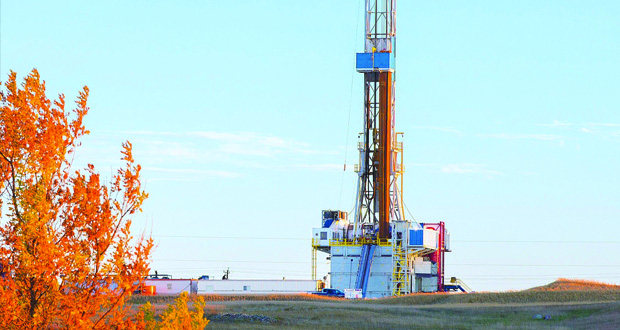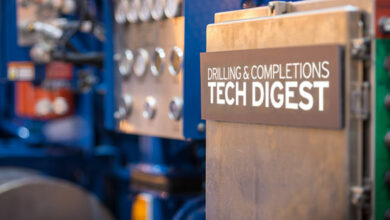Environment, Social & Governance

Annual sustainability reports from Hess, APA and Murphy tout progress in GHG reductions, safety
Three E&P companies – Hess, APA and Murphy – each recently published their respective annual sustainability reports.
Hess states it has made “significant progress” toward its new five-year targets to reduce operated Scope 1 and 2 greenhouse gas (GHG) and methane emissions intensities by approximately 50% from 2017 and to achieve zero routine flaring from its operations by the end of 2025.
The company has also introduced a Low Carbon Transition Framework in line with the latest guidance from the Task Force on Climate-Related Financial Disclosures. The framework provides a summary of the company’s climate-related risks, opportunities and actions in the areas of governance, strategy, risk management, metrics and targets.
In terms of safety, the company reported that it achieved a 9% reduction in its workforce total recordable incident rate (TRIR) despite adding two rigs in the Bakken and one in the North Malay Basin. Its severe and significant safety incident rate was also 14% below 2020 levels.
APA’s report highlights the end of routine flaring across its US onshore operations and the piloting of a real-time GHG monitoring program at its Permian Basin facilities last year. Also, 97% of the water used in the company’s US hydraulic fracturing operations in 2021 was non-fresh or recycled produced water.
Murphy’s report stated that its GHG emissions intensity has been lowered by 20% and its methane intensity has been reduced by 28%. Its lost-time incidence rate has dropped by 50% and its total recordable incidence rate has dropped by 46%. All comparisons were made against 2019 baselines.
Low-carbon techs may add 26,000 UK energy jobs by 2030
A trio of low-carbon technologies – mass production of hydrogen, carbon transport and storage, and electrification of offshore platforms – are set to generate 26,000 new UK energy jobs by 2030, according to research by Robert Gordon University (RGU). The study was commissioned by the OEUK under the North Sea Transition Deal, a 2021 agreement between the offshore oil and gas industry and UK government that aims to transform the sector in preparation for a net-zero future.
RGU’s study references the UK government’s British Energy Security Strategy, which focuses on expanding domestic UK energy supply and removing Russian oil and coal imports by the end of 2022. If those targets are met, then the RGU finds that by 2030 the UK would be:
- Storing 30 million tonnes of CO2 underground each year;
- Producing 10 gigawatts of hydrogen;
- Running 10 offshore oil or gas platforms on low-carbon electricity; and
- Employing up to 26,000 additional people.
These targets represent RGU’s best-case scenario but predate the UK’s Energy Profits Levy, the implications of which are not captured in the study. OEUK has warned that the levy will cost the industry £5 billion just in 2022 and risks discouraging the investment needed for new technologies.
E&Ps highlight commitment to methane reductions, reporting transparency
ConocoPhillips, Pioneer Natural Re- sources and Devon Energy have joined the Oil and Gas Methane Partnership (OGMP) 2.0 Initiative, a partnership among the UN Environment Program, the European Commission, the Environmental Defense Fund and more than 80 oil and gas companies. Its mission is to improve transparency in methane emissions reporting and encourage the reduction of those emissions. Membership demonstrates a commitment to reducing methane emissions and meeting global energy demand with responsibly sourced production.
OGMP 2.0’s reporting framework provides stakeholders with the assurance that methane is being managed responsibly. In turn, participating companies can credibly demonstrate that they are contributing to climate mitigation and delivering against their methane improvement objectives and targets.
Neptune joins project to reduce methane emissions
Neptune Energy has joined the Aiming for Zero Methane Emissions Initiative to cut emissions of the harmful greenhouse gas to near zero by 2030.
Signatories to the initiative aim to reach near-zero methane emissions from their operated assets by the end of this decade, avoid methane venting and flaring, and report methane emissions. They are encouraged to introduce new technologies for methane monitoring, measurement and mitigation, and to support implementation of methane regulations.
The focus on introducing new technologies to monitor and mitigate methane emission builds on Neptune’s work with the Environmental Defense Fund to deploy drone technologies to measure methane emissions at Neptune’s operated Cygnus platform in the UK North Sea. It also complements the company’s support of the Oil and Gas Methane Partnership and the World Bank’s Zero Routine Flaring by 2030 initiative.
Existing signatories to the initiative including BP, Eni, Equinor, ExxonMobil, Repsol, Shell and TotalEnergies.




